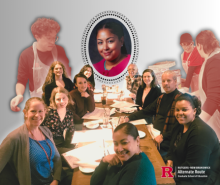Rutgers Alternate Route Veterans Share How to Transition from Military Service to Teaching
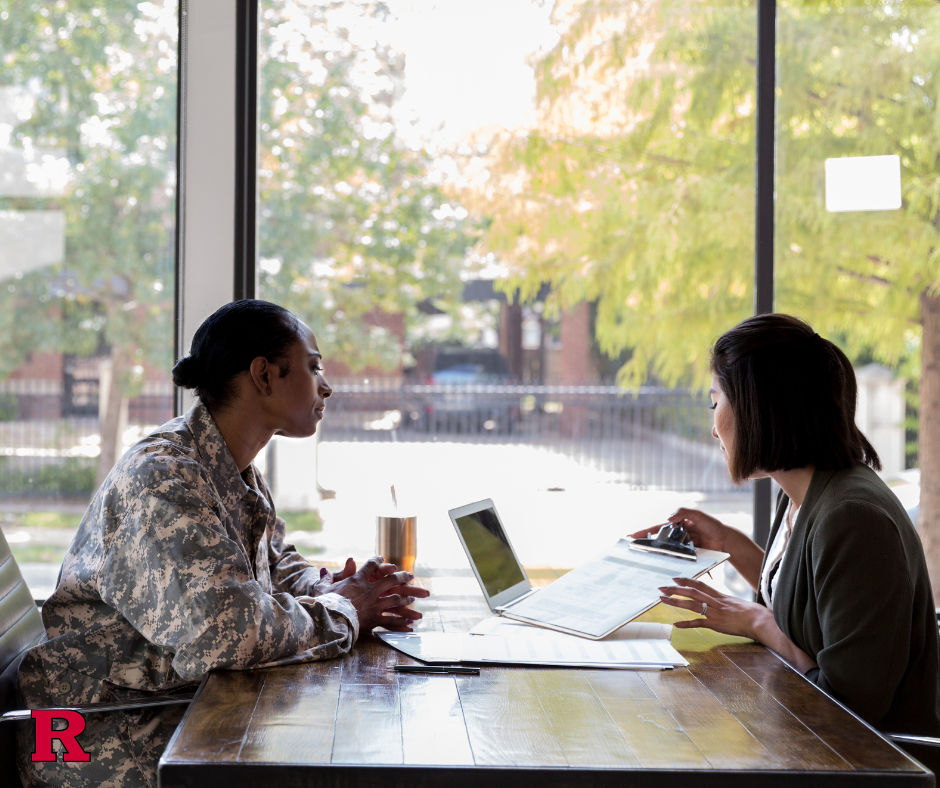
A big step for active military members ready to take on veteran status is determining how to enter civilian life. After spending anywhere from many months to many years adhering to a strict daily routine in the military, choosing what’s next is a decision that has the potential to overwhelm someone preparing to enter the civilian workforce.
Teaching is one profession that is often considered by military veterans or those approaching veteran status. Within the past year, a few posts from active-duty or recently retired military members have emerged on Reddit’s r/Teachers Subreddit. For those unfamiliar with the platform, Reddit is a social networking site where users exchange information and Subreddits are how the platform organizes its categories.
A moderated space, users can browse teaching topics, pose questions or respond to other users’ inquiries. Often, users request advice on what to expect when transitioning from military service to the education sector.

Luckily, Rutgers Alternate Route exists to open doors to anyone who wants to transition into teaching. Many candidates are military veterans who completed the program and are excelling as New Jersey educators. Some, like Rutgers Alternate Route teacher Samantha Morrone, discovered their passion for teaching during service.
While each candidate’s experience is different, they encounter some parallels—especially for those transitioning from the military to a classroom. Rutgers Alternate Route teachers Olivia McDonald, Ashley Carter and Robert Parker went through the program and are now getting hands-on experience in the classroom. They offered some advice to other current or former service members looking to become teachers.
Take time to reflect on where you feel a “pull”
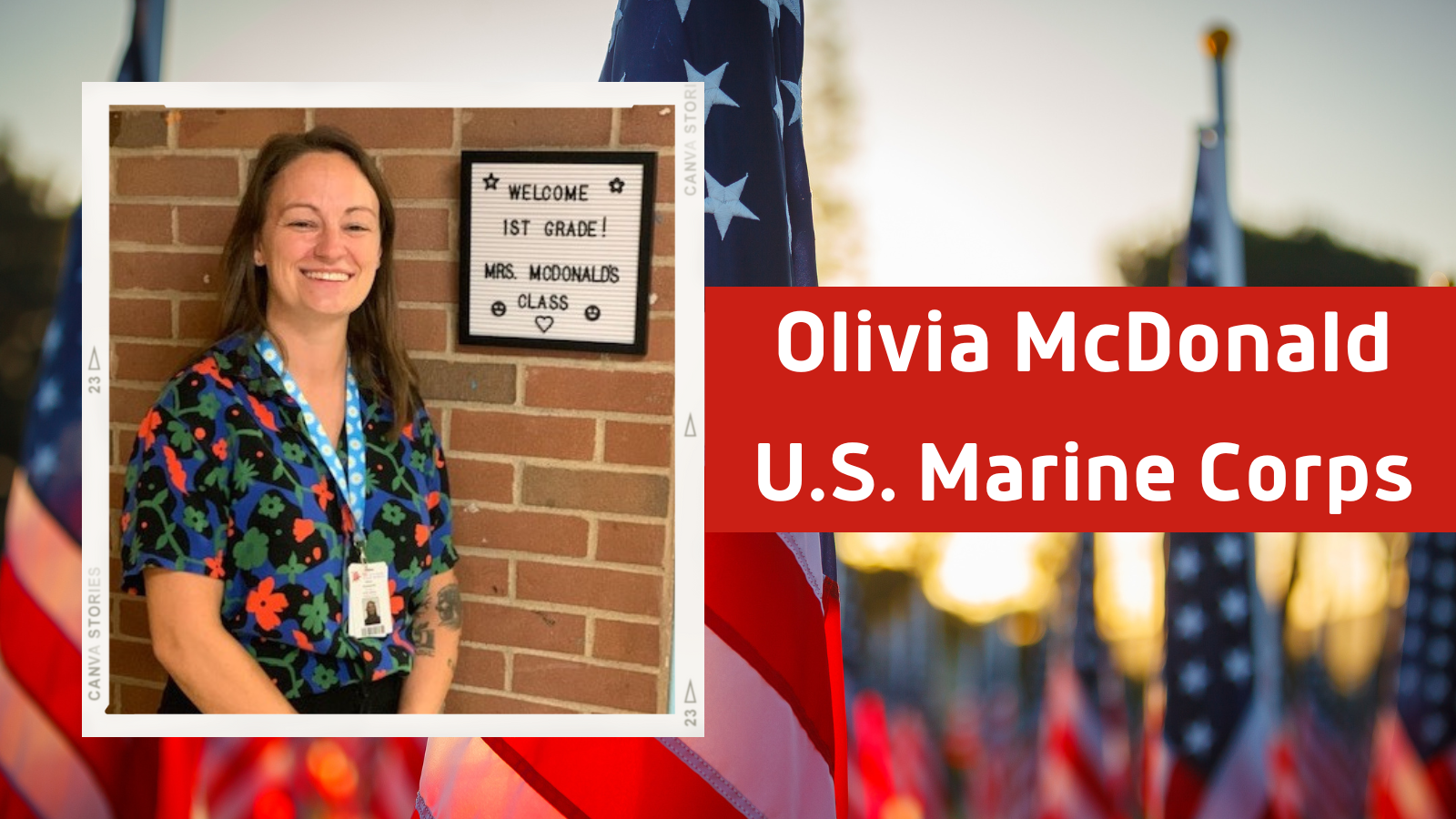
McDonald didn’t become an educator right away, despite her determination as a child.
“When I was a kid, if you asked what I would become I always said a teacher. But as a teenager, something pulled me to give more of myself and I became interested in serving.”
She pushed the urge down again when she gained veteran status and began thinking about her next journey.
“After getting out of the service, I thought I would teach later in life but I found myself once again feeling a pull that I was not truly being of service in the roles I worked.”
McDonald listened to that pull, started a Google search and discovered Rutgers Alternate Route.
Army National Guard veteran Carter felt that pull while enlisted and saw the impact her actions had on those she helped.
“My interest in teaching began when I started to understand the importance of service,” she said. “I enjoy helping others.”
Trust your loved ones
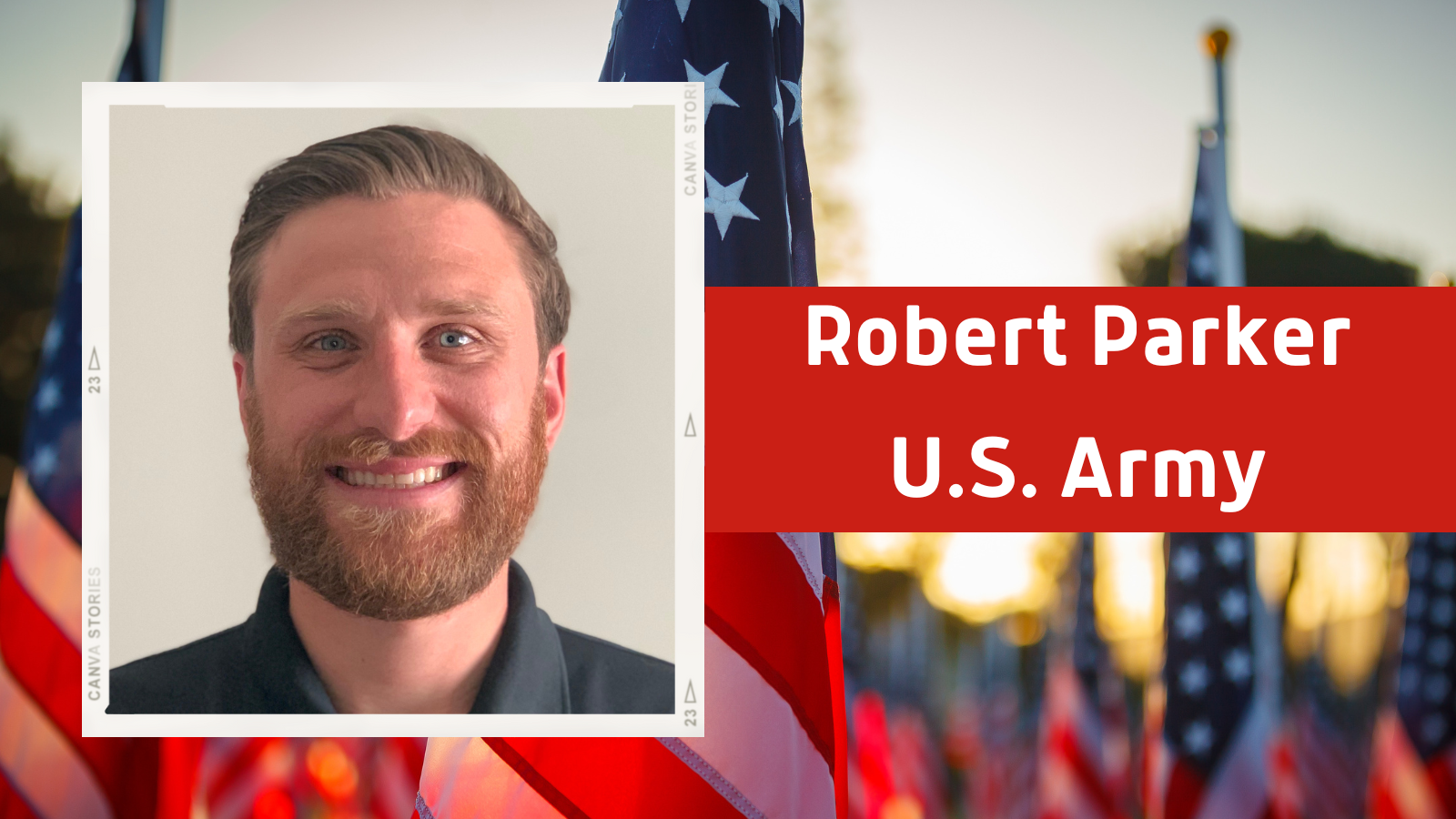
Similar to McDonald’s journey, Parker didn’t go into education immediately. Instead, he took a corporate role when he retired from the Army, where he spent eight years as an Armor officer, reaching the rank of Captain.
“My journey began during the COVID pandemic, and I found myself uncertain about my next steps. After leaving the service, I took a job in the corporate world, but I spent three years in a role that didn’t resonate with me.”
A West Point alumnus, Parker was motivated by his accomplished peers to step into the corporate world, however, his wife knew his heart best.
“I’m not only a teacher myself, but also a proud husband to a dedicated educator. When I was contemplating my career options after the Army, my wife suggested teaching, and I initially considered it,” Parker said.
When he passed over teaching for a corporate opportunity, that initial pull came back around.
“After realizing that the corporate world wasn't the right fit for me, I revisited the idea of teaching and recognized that my true passion lies in coaching, teaching, and mentoring—skills I honed during my time in the Army and in the corporate sector.”
Attend a So You Want to Teach virtual information session
McDonald finished her bachelor’s degree at the beginning of the COVID-19 pandemic and didn’t want to return to school. The Rutgers Alternate Route program taught McDonald her path to teaching wasn’t as overwhelming as she thought.
Tailored specifically for career changers who wish to fast-track their teaching certification and aren’t seeking a master’s degree, Rutgers Alternate Route has helped nearly 5,000 individuals realize their teaching dreams since its inception in 2003.
“This program has been instrumental in my journey, guiding me through the certification requirements and equipping me with the essential tools to navigate my first month of school successfully,” Parker said.
Rutgers Alternate Route’s monthly So You Want to Teach virtual event is a simple and commitment-free way for aspiring educators of all backgrounds to understand what life as a teacher is like and how to take the steps toward getting certified to teach in New Jersey—ultimately breaking the process down to help lessen feelings of anxiety and overwhelm.
After the session, it’s up to attendees to take the next step.
Lean on your mentors
Mentorship is a common theme in both the education sector and military service. Leaning on one another’s expertise is key to reaching goals bigger than oneself.
“I did always enjoy any opportunity to train or teach my Marines,” McDonald said. “I wanted to always push them to be the best and help them however I knew how.”
Informed by their experience in the military, veterans who go into teaching understand they can bring more to the table by connecting with a mentor.
In the Rutgers Alternate Route program, McDonald has found that kind of person in Dr. Irene Hall, her course instructor and informal mentor who she describes as “wonderful” and “understanding.”
“[Dr. Hall] has shared the advice and strategies you need to survive your first year.”
Tap into leadership skills when faced with challenges
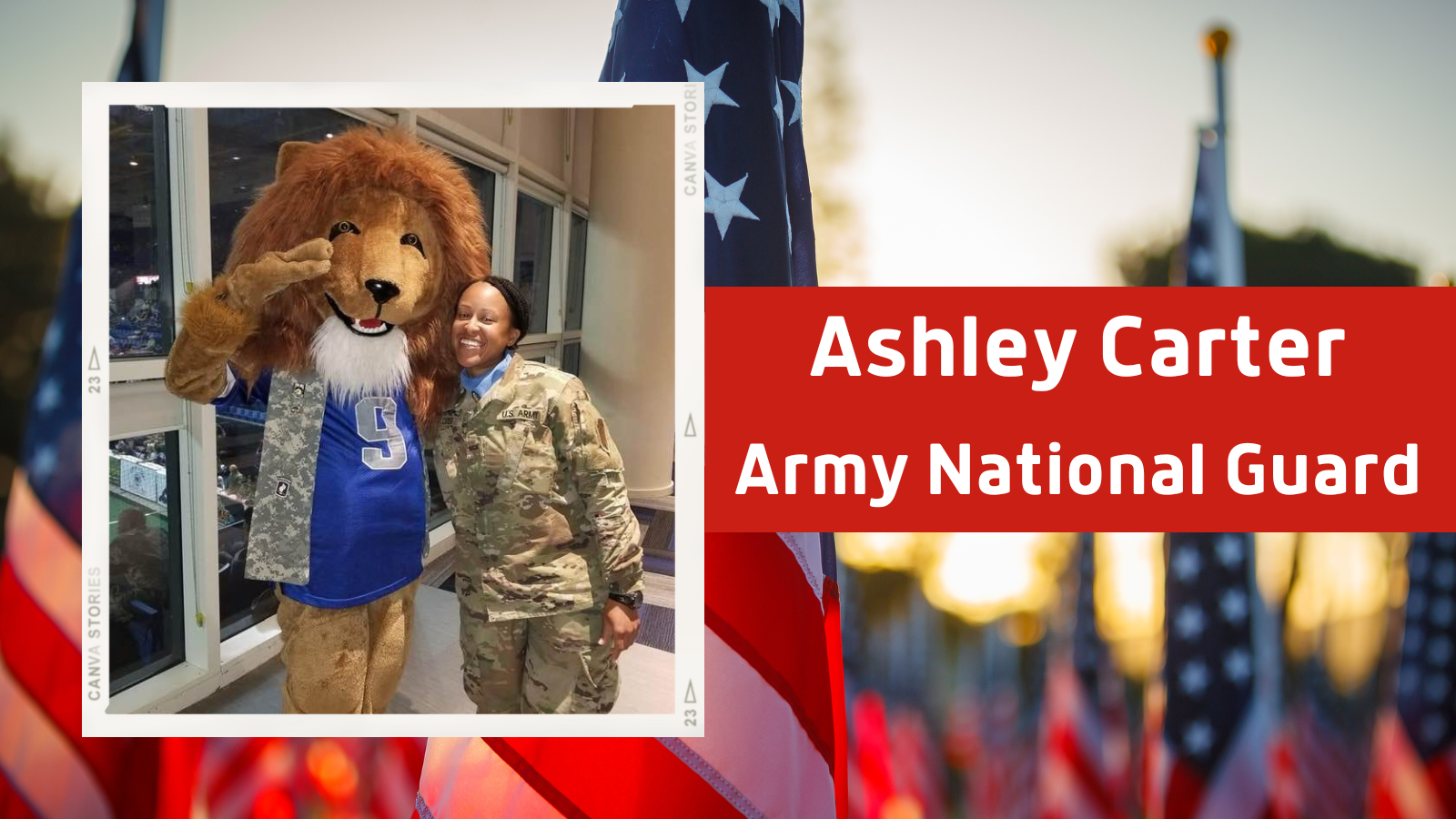
Veterans are in a unique situation where they already demonstrate core leadership skills that can be adapted to a classroom setting.
“The military has taught me the importance of being punctual and how to work on a team,” Carter shared as an example. “My first year as a teacher was great because of skills that the military had instilled in me such as learning as much as I can to be the best that I can be.”
These environments may be completely different from one another but the skills needed to navigate them are still the same.
“The Army equipped me with invaluable life skills that I apply every day, such as problem-solving and adaptability,” Parker said. “Over my eight years of service, I held 10 different roles, each demanding that I quickly adapt to new systems and learn new skills. I’ve relied heavily on those experiences as I acclimate to my new position.”
Leaning into those skills helps veterans navigate classroom challenges more easily and recognize that each student has their own personality, learning style and goals.
“My favorite aspect of my military service was the opportunity to lead soldiers. My most rewarding days were spent helping the men and women in my unit achieve personal goals, navigate challenges in their lives, and strive for self-improvement. The coaching, teaching, and mentoring elements of the role were what truly made it fulfilling for me.”
Reflect and remember that the experience is different but still rewarding
Transferring skills to a different environment is challenging, especially when veterans go from working with adults to working with children.
“Leading Marines and managing a class of six-year-old first graders are very different challenges,” McDonald said. “I think classroom management is a constant experiment, what works this week may not work next month. It’s a lot of trial and error. Taking the time to really reflect on your students and your own behaviors is the only way to really figure out what is going to work for the class and the individuals that make up your class.”
Parker said two phrases come to mind when facing these challenges: “I’m building the plane as I fly it” and “It’s like drinking from a fire hose.”
“I recognize that I have so much to learn, and each day brings a wealth of new insights,” he said. “Reflection has become a vital part of my lesson planning, as I continually discover ways to enhance my lessons and teaching methods.”
If you’re considering following your dream of teaching, Rutgers Alternate Route can offer you the support and training you need to succeed. Be sure to follow Rutgers Alternate Route on Twitter and sign up for Alternate Route’s monthly newsletter for more information and stories from the field of education.

 Lindsay Patton is a digital communications professional who specializes in social media, writing, digital marketing, e-commerce, podcasting and other content-focused endeavors. Since 2019, she has assisted Alternate Route with its marketing strategy to help the program reach new audiences. As a result of this collaboration, Alternate Route has introduced Lindsay to many of New Jersey's talented educators, who have had a direct influence on her own classroom strategies as an adjunct professor. She is grateful for the opportunity to create meaningful content that helps increase equity within classrooms and is inspired by Alternate Route's hardworking team.
Lindsay Patton is a digital communications professional who specializes in social media, writing, digital marketing, e-commerce, podcasting and other content-focused endeavors. Since 2019, she has assisted Alternate Route with its marketing strategy to help the program reach new audiences. As a result of this collaboration, Alternate Route has introduced Lindsay to many of New Jersey's talented educators, who have had a direct influence on her own classroom strategies as an adjunct professor. She is grateful for the opportunity to create meaningful content that helps increase equity within classrooms and is inspired by Alternate Route's hardworking team. 
